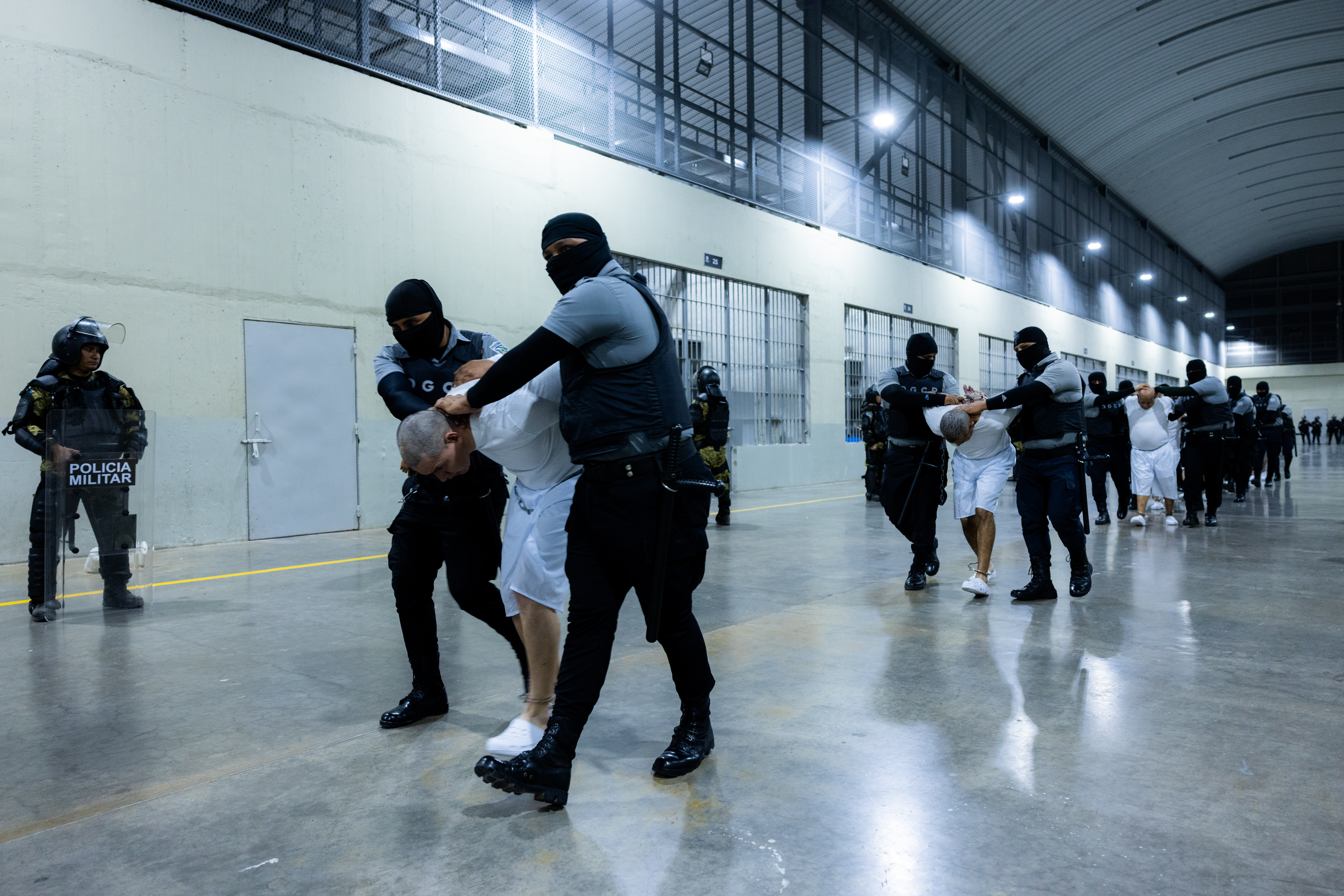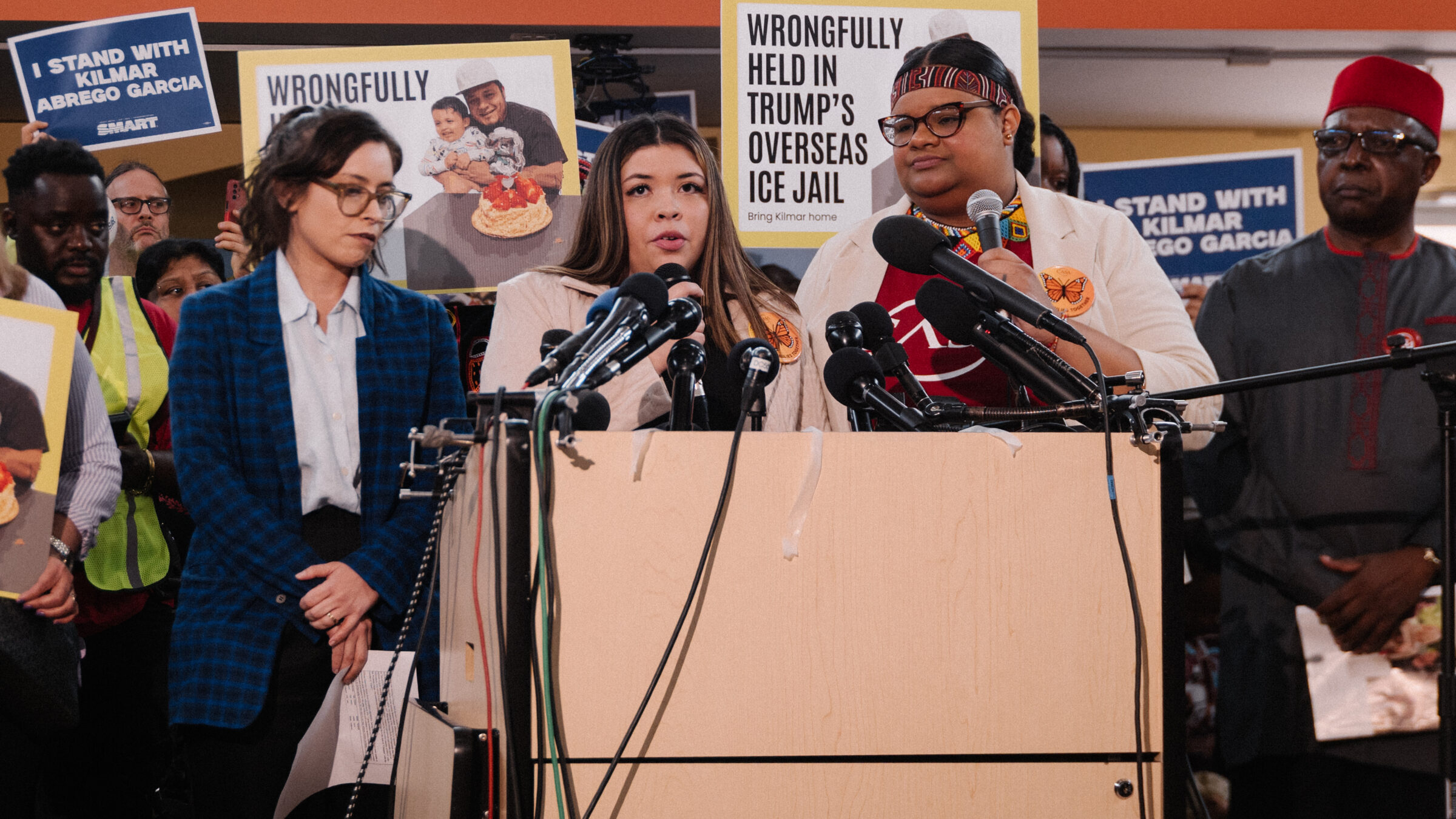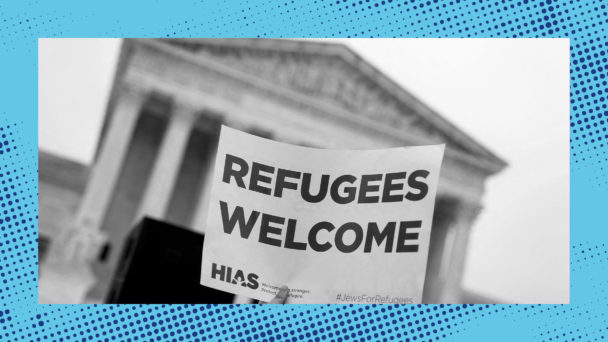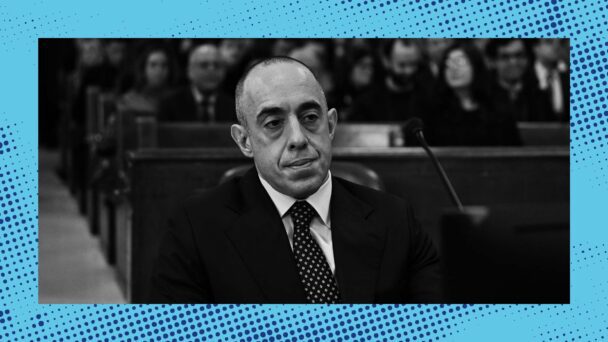Sometime in the next week or so, the U.S. Supreme Court will decide a distressingly open legal question: whether Constitution allows the government to disappear you off the street and ship you to a foreign torture prison, and robs federal judges of the power to do anything about it.
The case is about Kilmar Armando Abrego Garcia, a 29-year-old Salvadoran man who has been living in the United States since 2011. On March 12, federal immigration officers in Maryland stopped Abrego Garcia as he picked up his 5-year-old son after work. At first, they told him that if his wife, Jennifer, didn’t arrive within 10 minutes, they’d hand the boy over to child protective services; after Jennifer rushed to the scene, she and her son had to watch as the officers handcuffed Abrego Garcia and drove him away.
Four days later, Abrego Garcia’s family found out that the U.S. government had accused him of being a member of the gang MS-13, and on that basis sent him to a megaprison in El Salvador. They did not learn this from the government, but instead from propaganda photos released by the Salvadoran government that show a handcuffed Abrego Garcia, his head shaved, getting marched through the building by masked guards holding him by the neck. Human rights groups have roundly condemned conditions in the prison, known as CECOT, which include overcrowding, malnutrition, and routine violence; as Adam Serwer notes at The Atlantic, Salvadoran officials have previously said that people incarcerated at CECOT will “never leave.”

Detainees arrive at CECOT from the United States in March (Photo by El Salvador Press Presidency Office/Anadolu via Getty Images)
Abrego Garcia left El Salvador at age 16, and arrived in the U.S. in 2011 without legal documentation. But in 2019, an immigration judge placed Abrego Garcia in “withholding of removal,” a protected status that prevents deportation to his home country on the grounds that he’d likely be harmed by the same Salvadoran gangs who prompted him to flee in the first place. Today, he has a full-time job as a union sheet metal worker in Prince George’s County, and has no criminal record. His wife is a U.S. citizen, as is his son. The government has never shown that Abrego Garcia part of MS-13, and during his immigration proceedings in 2019, it barely even tried: The only “evidence” the first Trump administration offered in support of this claim was (1) the fact that he’d once been seen wearing Chicago Bulls gear, and (2) a confidential informant’s uncorroborated assertion that Abrego Garcia belonged to an MS-13 “clique” in New York, a state in which he has never lived.
During a hearing last week, Trump administration lawyers admitted that they had no proof of Abrego Garcia’s gang membership—and, given his protected immigration status, no legal authority to detain him, let alone put him in shackles on a plane bound for a gigantic concrete torture chamber. The district court judge, Paula Xinis, ordered the government to return Abrego Garcia to the United States by midnight on April 7, writing that the risk of harm to which the government had subjected Abrego Garcia in the meantime “shocks the conscience.”
On Monday, a three-judge panel for the Fourth Circuit Court of Appeals declined the Trump administration’s request to block that order from taking effect. In a concurring opinion, Judge Stephanie Thacker echoed Xinis’s language, describing the government’s argument—that it has “legal authority to snatch a person who is lawfully present in the United States off the street and remove him from the country without due process”—as “unconscionable.”
As part of its appeal to the Supreme Court, the Trump administration again concedes that its removal of Abrego Garcia was an “administrative error.” But, it continues, that error “does not license district courts to seize control over foreign relations, treat the Executive Branch as a subordinate diplomat, and demand that the United States let a member of a foreign terrorist organization into America tonight.” I want to stress here that the Justice Department’s official position here is that, as a matter of constitutional law, if the executive branch ships you off to a gulag, even by mistake, federal courts have no power to compel the executive branch to retrieve you.
The Justice Department’s filings include assertions that your average second-year law student would recognize as wrong, nonsensical, deranged, or some combination thereof. It repeatedly asserts as a fact that Abrego Garcia is a “ranking” member of MS-13, despite never having proven anything remotely like this claim in court. (With “due process of law,” one might say.) It frames the Trump administration as powerless to “control the sovereign nation of El Salvador” or to “compel El Salvador to follow a federal judge’s bidding,” even though Abrego Garcia is only in El Salvador because the U.S. government is paying El Salvador millions of dollars to imprison him. It argues that because the United States and El Salvador are both parties to the Convention Against Torture, the federal government has necessarily “ensured” that Abrego Garcia will not be tortured—because, of course, when the White House says things like this in public, what historical precedent exists to doubt its word?

Abrego Garcia’s wife Jennifer speaks at a press conference on April 4 (The Washington Post via Getty Images)
The government’s bigger-picture claims, though, are the most disturbing. In the Trump administration’s view, the president’s Article II power to conduct foreign relations sweeps so broadly that federal judges cannot take any action that might possibly infringe on that authority. Even if the government disappears a legally innocent person by accident—or, at least, if the government says it disappears that person by accident—the president’s “central Article II prerogatives” cannot “give way to district-court diplomacy,” writes Solicitor General John Sauer. As Abrego Garcia’s lawyer correctly points out, this result would render all congressionally-enacted immigration statutes meaningless, to say nothing of the Constitution itself.
The Fourth Circuit panel recognized as much when turning away the government’s challenge to Xinis’s order on Monday morning. “This is a slippery—and dangerous—constitutional slope,” Thacker wrote. “What is stopping the Government from removing and refusing to return a lawful permanent resident or even a natural born citizen?”
As expected, the Supreme Court entered an administrative stay on Monday, temporarily relieving the government of its obligation to secure Abrego Garcia’s return until the justices can decide the case. But none of the potential outcomes are especially encouraging for the rule of law enthusiasts out there: If the Court sides with Abrego Garcia, it will be daring the White House to ignore the ruling, thus initiating the full-blown president-versus-Supreme-Court constitutional crisis Chuck Schumer has been warning about. On the other hand, if the Court’s conservative supermajority sides with the government, Trump will understand more clearly than ever that the justices lack the interest and/or courage to stop him from abusing his power as he sees fit.
Among the reasons authoritarian movements first target members of minority groups is the bleak reality that many people look at the initial victims and think, Well, that’s not me, so it won’t be me. This is as foolish as it is dangerous. The White House is using Abrego Garcia’s case to stretch the law to its breaking point. If the state can kidnap people from their homes and send them to a rights-free zone for the indefinite future, and the Court charged with defending the Constitution cannot manage anything more than a shrug of its shoulders, it might as well shut down for good.





